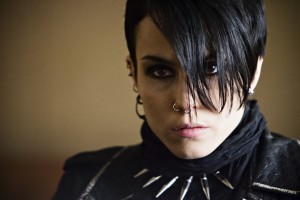
From the depths of the New York Daily News comes this heartwarming story about a Stockholm preschool that has done away with both traditional fairy tales and gendered pronouns:
At the “Egalia” preschool, staff avoid using words like “him” or “her” and address the 33 kids as “friends” rather than girls and boys.
From the color and placement of toys to the choice of books, every detail has been carefully planned to make sure the children don’t fall into gender stereotypes.
“Society expects girls to be girlie, nice and pretty and boys to be manly, rough and outgoing,” says Jenny Johnsson, a 31-year-old teacher. “Egalia gives them a fantastic opportunity to be whoever they want to be.”
I really only have two things to say about this. Actually, really just one and a half:
1. Ain’t gonna work. Not unless the whole of Swedish society, from preschools on up, does exactly the same thing, and bans all stereotypical depictions of gendered identity. Kids pick things up everywhere, not just in preschool, and no amount of inventing new pronouns is going to counteract what they see and hear elsewhere. And I say this as the father of a 2-and-a-half girl who loves to run, jump, and hit things with sticks—and insists on wearing a “fairy dress” each and every day of her life.
1.5. “Friends,” coincidentally enough, is how Sasha’s teacher, Miss Bree, addresses the kids in her class: “Friends” or “My friend.” It’s really cute, and the kids pick up on it, too, calling each other my friend. I believe, but am not certain, that Miss Bree’s use of the term comes from what kids are called in Chinese: xiao pengyou, or “little friend(s).” And if the Chinese have been calling kids “little friends” for thousands of years, and still haven’t defeated gender stereotyping, then I hold out little hope the Swedes will succeed.
Really, the Swedes would be better off tracking down the hundreds (thousands?) of genetically modified Nazi rapist serial killers hiding in plain sight at the top levels of large corporations and major government agencies. Then they can worry about girls, boys, dolls, and sticks.

don’t knock it- if you agree that gender equity is a worthy goal, then it’s worth a try.
One person’s “worth a try” is another person’s “pointless, possibly counterproductive waste of time, energy, and resources.” I’m all for gender equity, but this doesn’t seem like a particularly smart or effective way of achieving it. And on top of that (or maybe underlying it), I think I have a basic philosophical difference with this approach: that is, you achieve gender equity not by pretending that everyone is the same but by recognizing that people are different: boys, girls, intersexed, tall, short, blue-eyed, brown-haired, Muslim, Christian, atheist, whatever. The fantasy of sameness, I’d imagine, could horribly backfire when kids realize that, hey, we’re not actually all the same.
I agree with Matt’s comment. I live in Belgium and have heard of this preschool quite some time ago. My first thought as well was that erasing gender could backfire horribly. I’m all for gender equity but also for personal identity. I also see that by being “equal” at school, the girls will inevitably look and act more like boys, assuming that ponytails and dresses may be looked down upon…and how is that equal or even fair?